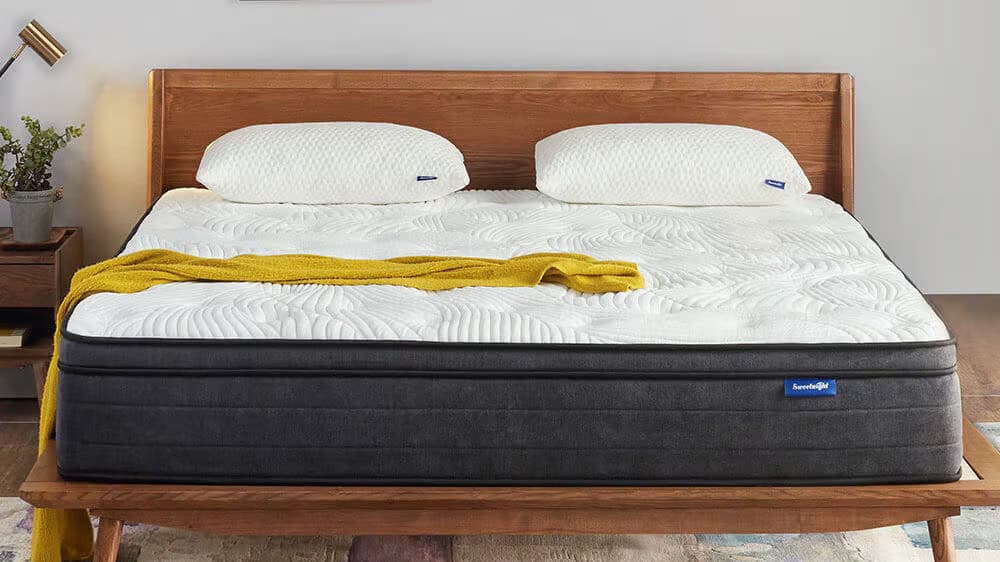How Many Calories Do You Burn While Sleeping? Tips for Burning More Calories During Sleep

How many calories do you burn while sleeping? That can be found in all matters of the body’s metabolism. It is the process by which the body transforms food into energy for use in daily activities. Your body uses calories just to breathe, keep your organs working, and circulate blood. Basal metabolic rate (BMR), on the other hand, is a measure of how many calories you burn each day while at rest or when you aren’t moving around much. This includes sleeping and sitting.
To calculate your basal metabolic rate (BMR), you use an equation that includes factors such as: sex, weight, and age using centimeters for height and kilograms for weight.
More calories will likely be burned while sleeping and engaging in other activities the heavier you are. At rest, men typically burn more calories than women of similar weight. for the simple reason that men typically have more muscle. At rest, muscle burns more calories than fat.
There are, in fact, many different factors. We break down everything you need to know in this post to increase the number of calories you burn each night while you sleep.
Table of Contents
How to Calculate Calories Burned While You Snooze?
So, how do you figure out your special capacity for calorie burning while you sleep?
The only thing that matters is your metabolism, which is how your body turns food into usable energy. Your body needs to expend energy just to breathe, circulate blood, and maintain healthy organ function. This burn calories.
Meanwhile, your basal metabolic rate (BMR) represents the number of calories you burn at rest, which, yes, includes when you watch “Friends” reruns or are passed the eff out on the couch.
Your BMR equation
Want to determine your unique BMR? Use this equation, which factors in your sex, weight, and age (use inches for height and pounds for weight):
- 655.1 + (4.35 x weight) + (4.7 x height) – (4.7 x age) = BMR for women
- 66 + (6.2 x weight) + (12.7 x height) – (6.76 x age) = BMR for men
For instance, a 30-year-old woman who weighs 140 pounds and is 5 feet 5 inches tall would burn:
- 655.1 + (4.35 x 140 pounds) + (4.7 x 65 inches) – (4.7 x 30 years) = 1,439 calories in 1 day at rest (or 60 calories per hour while sleeping)
These equations are based on the idea that men typically burn more calories at rest because they typically have a naturally greater muscle mass, but they do not provide precise statistics. Fat burns fewer calories at rest than muscles do.
Calculate both numbers and choose the one that falls between them if you have more or less muscle than the average male or female. To track your calories burned more precisely than an equation, you can spend money on a heart rate monitor.
Average Calories Burned During 8 Hours of Sleep
Don’t worry if math isn’t your thing. A good place to start might be to look at some average numbers. Consider these examples for calories burned during eight hours of sleep:
- 30-year-old, 110 lb female: 406 calories
- 30-year-old, 180 lb male: 601 calories
- 50-year-old, 110 lb female: 376 calories
- 50-year-old, 180 lb male: 558 calories
- 40-year-old, 130 lb female: 424 calories
- 40-year-old, 200 lb male: 619 calories
As you can see, calorie expenditure rises with body weight and rises with age. It is not surprising that we see a decrease in caloric burn as we age because metabolism slows with age. A larger person will also require more calories to maintain their body weight.
Tips for Burning More Calories During Sleep
It turns out that there are a few methods for increasing your calorie burn while you’re asleep. Getting a better night’s sleep is the first step in solving the problem. Make sure your sleep cycle includes REM (rapid eye movement) segments. Your brain is most active at this time, which results in greater calorie expenditure. This is because during this sleep cycle, when your brain is working hard, it burns more oxygen.
You already know that getting a good night’s sleep is important for maintaining your physical and mental health because the effects of even one night of poor sleep can be felt the following day.
By simply increasing the quality of our sleep, we might be able to burn more calories while we are asleep. And while this might appear straightforward and simple to some, getting a good night’s sleep can be a delicate process.
To improve the quality of your sleep, you may like to try some of the following:
- The routine that our bodies love. To ensure you get the recommended amount of sleep, try going to bed at the same time each night.
- Take a 20-minute power nap if you’re feeling tired during the day. It will be more difficult to fall asleep at night if you go over this time.
- Limit your alcohol consumption, especially three hours before bed.
- Reduce your intake of caffeine and abstain from drinking it after noon.
- At least a few hours before bed, stay away from vigorous exercise.
- By turning off electronics at least one hour before bed, you can reduce the amount of blue light you are exposed to. To unwind, try reading a book or engaging in another calming activity.
- Take a warm bath or shower before bed, or think about engaging in stress-relieving activities like yoga or meditation.
- Make sure your bedroom is cool and dark, and that your bed and pillows are supporting your body comfortably.

Other Factors That Impact Sleep Burn
Despite being a literal boss all night, running in your dreams won’t increase the amount of calories you burn while you sleep.
Take steps to increase your metabolism, such as exercising and eating well, if you want to increase your BMR. Additionally, by doing this, whether you’re drifting through sleep or jogging through the neighborhood, your body will constantly burn more calories.
Here are a few additional elements that may impact your metabolism and the amount of calories you burn while sleeping.
Late-night Nomming
Nothing beats midnight. pizza, amiright? Although it’s possible that you’ve heard that eating before bed will slow your metabolism, science says that’s not the case.
A process known as thermogenesis, or the release of energy as heat after eating, can actually cause a brief increase in your metabolism as a result of those late-night munchies.
Basically, don’t worry too much about when you eat as much as what you eat. Numerous snacks consumed throughout the day can result in weight gain and sluggish metabolism.
Muscle Gains
You’ll burn more calories the more muscle mass you possess. Thus, including daily exercise—especially strength training—will help you burn more calories while you sleep (and while you press the snooze button ten times).
Drinking Coffee After Coffee
According to some research, caffeine temporarily boosts your metabolism, which may last into the hours before you go to sleep.
However, wait a little bit before downing Red Bulls or cappuccinos. The existence of a long-term weight loss effect of caffeine has not yet been sufficiently established by research.
Not Enough Zzz’s
Cortisol levels can rise when you don’t get enough sleep, whether it’s because of a work overload, insomnia, or late-night Netflix sessions.
Cortisol causes your body to hang on to extra fat, makes you hungrier (and hangrier), and slows your metabolism. A 2017 study also revealed that better metabolic profiles and lower BMI are linked to longer sleep.
Certain Health Conditions
Your metabolism can be slowed down by a number of illnesses, including hypothyroidism and Cushing syndrome. Despite eating well and exercising regularly, this can result in weight gain and a slower rate of calorie burn.
Consult your doctor if you believe you may have a medical issue that affects your metabolism. In order to identify specific conditions, they can evaluate you using tools like blood tests.
If You Struggle to Get Enough Zzz’s, Try Out These Tips
- Try to follow a schedule every day, getting up and going to bed at similar times. This will facilitate the natural rhythmic process in your body.
- Before going to bed, unwind by taking a warm bath, reading by candlelight, or engaging in some form of meditation. You might also give breathing exercises a try. It all depends on what makes you feel most relaxed.
- White noise machines, weighted blankets, earplugs, and blackout curtains are some examples of sleep aids that can help you get a better night’s sleep. It may also be beneficial to keep your room between 60 and 67 degrees Fahrenheit (15 and 19 degrees Celsius).
- Well, some naps are fine, but try to keep them to under 30 minutes. Any additional time spent dozing during the day can make it more difficult to fall asleep later.
- Avoid stimulants like caffeine and nicotine before bed to improve your sleep quality. Consider drinking some soothing tea instead.
- As difficult as it may be to resist, refrain from scrolling Instagram before bed. Turn off all devices. Your natural sleep cycle may be disturbed by blue light from screens.
Sleep and Your Health
It should come as no surprise that getting less sleep can have the opposite effect now that you are aware that getting more sleep will increase the amount of calories you burn while you sleep. 3055 men and 3052 women between the ages of 67 and 96 and 70 and 99, respectively, were the subjects of a Cleveland study.
Men who slept for less than five hours were nearly four times more likely to be obese than those who slept for seven to eight hours every night. More than twice as many women who slept less than five hours per night were obese as their well-rested counterparts.
Increased body fat was also linked to insufficient sleep time. Additionally, compared to those who get enough sleep, those who are chronically sleep deprived are more likely to be overweight, have cardiovascular disease, strokes, infections, and even some types of cancer.
It should be noted that people with age-related neurological conditions like Parkinson’s and Alzheimer’s disease experience sleep disturbances more frequently. The order of disorders causing sleep loss or sleep loss causing disorders is still unclear to researchers.
The bottom line is that your body requires a restful night’s sleep to operate properly. If you’ve tried sleep improvement strategies but are still having trouble sleeping enough, you may have a sleep disorder.
If you experience chronic sleeplessness, speak with your healthcare provider. A polysomnogram or sleep study may be suggested. It will record information about your breathing, limb, and eye movements as well as your oxygen levels. Doctors may use these findings to recommend additional testing or help them create a treatment plan.
Frequently Asked Questions
How Many Calories Do You Naturally Burn in a Day?
Your age, biological gender, and the average amount of activity you engage in each day all affect how many calories your body needs. Women who work desk jobs and engage in minimal exercise typically burn 1,600 calories per day. Men who live sedentary lives and exercise little, however, typically burn around 2,000 calories per day. However, even a small activity like tapping your toes can result in calorie burn. What is the most effective natural way to burn calories? incorporating exercise into daily activities, such as choosing to walk instead of drive.
How Can I Lose Weight by Sleeping?
The best way to make the most of your sleep hours to burn more calories is to make an investment in better sleep. Limit blue light exposure, eliminate distractions from the bedroom, eat a healthy, small meal before bed, schedule exercise for the morning or afternoon to avoid disrupting sleep, and follow good sleep hygiene. A higher BMR can also be attained by choosing to move well throughout the day.
Do You Burn More Calories Sleeping Or Awake?
Since your body is active and you need energy to complete your daily tasks, you burn more calories when you are awake. As we’ve discussed repeatedly, you can also burn calories while you sleep, but you’ll do so more efficiently when you’re awake and moving around.
How Many Hours Should I Sleep to Lose Weight?
To lose weight, you do not need to sleep more or less than is advised. The CDC recommends basing your sleep schedule on these recommendations and adding the number of hours of sleep required for your age group. Adults should sleep for 7 to 9 hours every night.
Can Oversleeping Cause Weight Gain?
Both insufficient and excessive sleep can affect your metabolism and cause you to gain weight. To maintain proper operation of all internal processes, you should get the recommended amount of sleep. You can keep a healthy weight when your body is in good condition. Carlene Thomas, RDN, LD, notes, “Since you spend fewer hours each day standing up and moving around, excessive sleeping can lead to weight gain.”
Do Sleep Stages Impact Calorie Burning?
Rapid eye movement (REM) and non-REM sleep are the two fundamental types of sleep. Both of these types of sleep cycle through during a typical night’s rest, and you can tell which one you’re in by the specific brain waves that correspond to it. Usually, it takes about 90 minutes after you go to sleep for you to start experiencing REM sleep.
Memory consolidation, body repair, and other processes depend greatly on REM sleep. Additionally, you burn the most calories during this stage of sleep because it is the deepest stage. You’ll feel and perform better, burn the most calories, and achieve a win-win situation if you get enough REM sleep.
Sleep Better to Burn More Calories
People can burn anywhere between 300 and 700 calories each night, according to our calculations. Try sleeping in a room that is cool and dark, around 68 degrees, to raise this figure. By doing this, you’ll be able to maintain your body temperature while burning more calories.
Evening sleep can be improved by engaging in physical activity during the day. Make sure your sleep cycle places you in REM sleep since this is the stage during which you burn the most calories.
On the other hand, sleep deprivation can result in weight gain and may exacerbate other medical conditions like cancer and cardiovascular disease. Try adhering to a regular sleep schedule and cutting down on electronic and television use before bed if you’re having trouble getting those eight hours every night. Consult your physician to determine if you have a sleep disorder if this still doesn’t help.
Read about Can You Sleep With Contacts In




















![Silk & Snow Hybrid Mattress Review Should You Buy It Or Not [2022]](https://www.myspacebeds.com/wp-content/uploads/2022/11/Silk-Snow-Hybrid-Mattress-Review-Should-You-Buy-It-Or-Not-2022-520x293.jpg)
